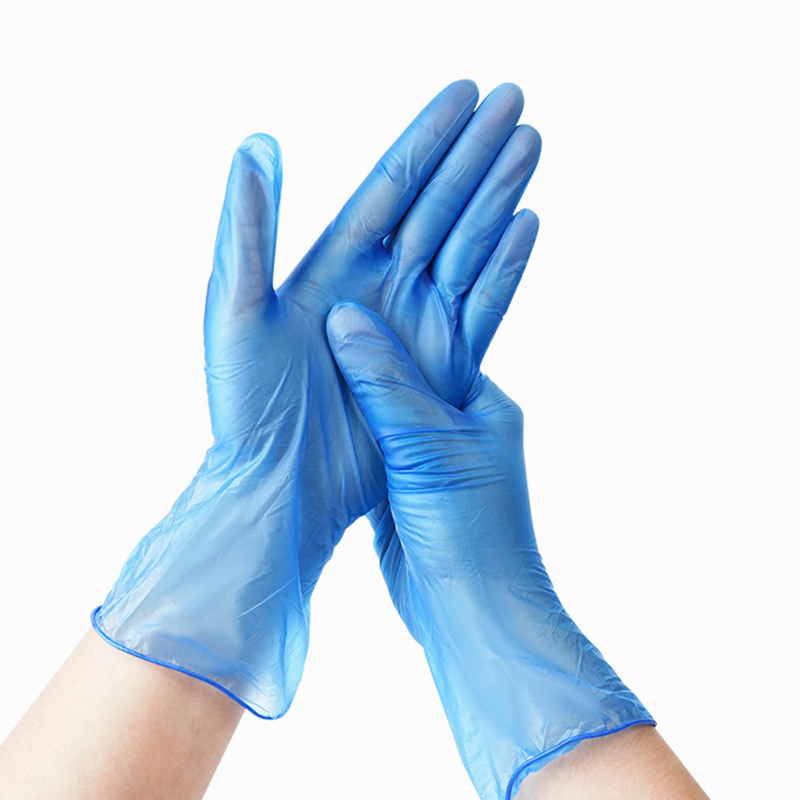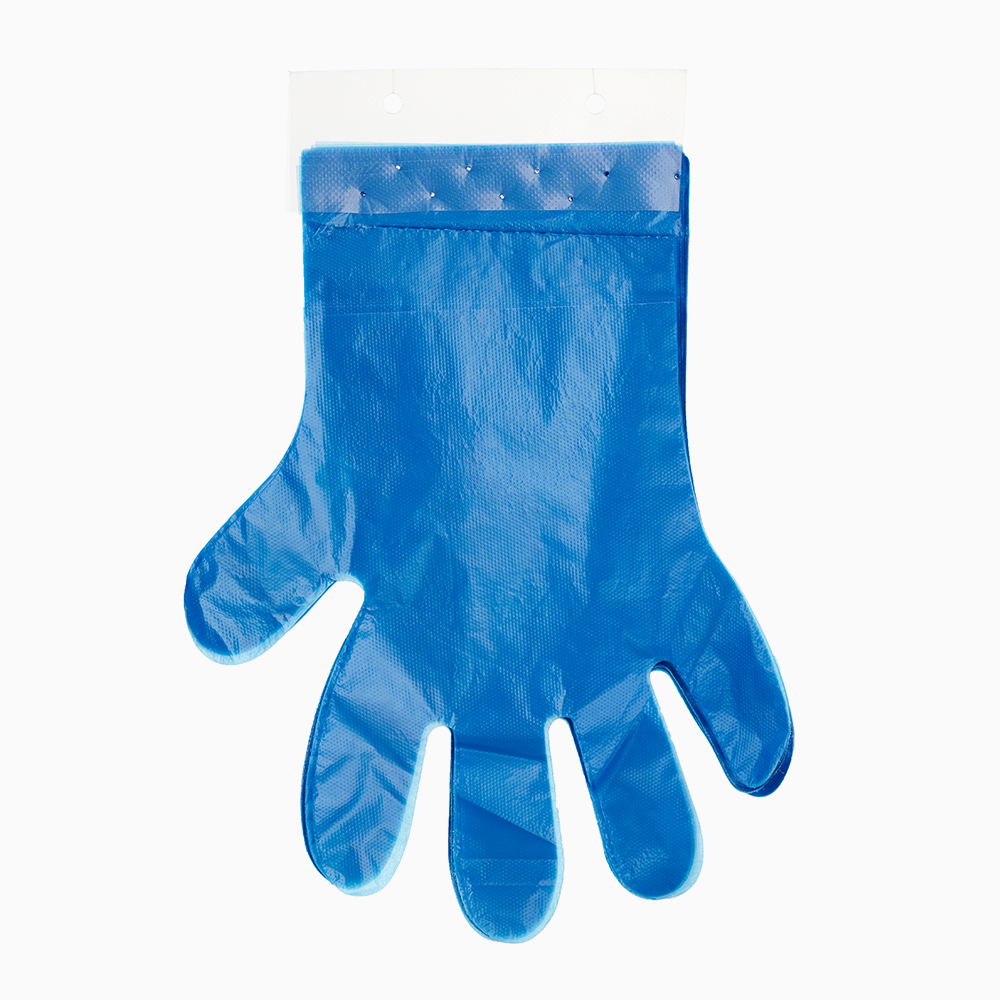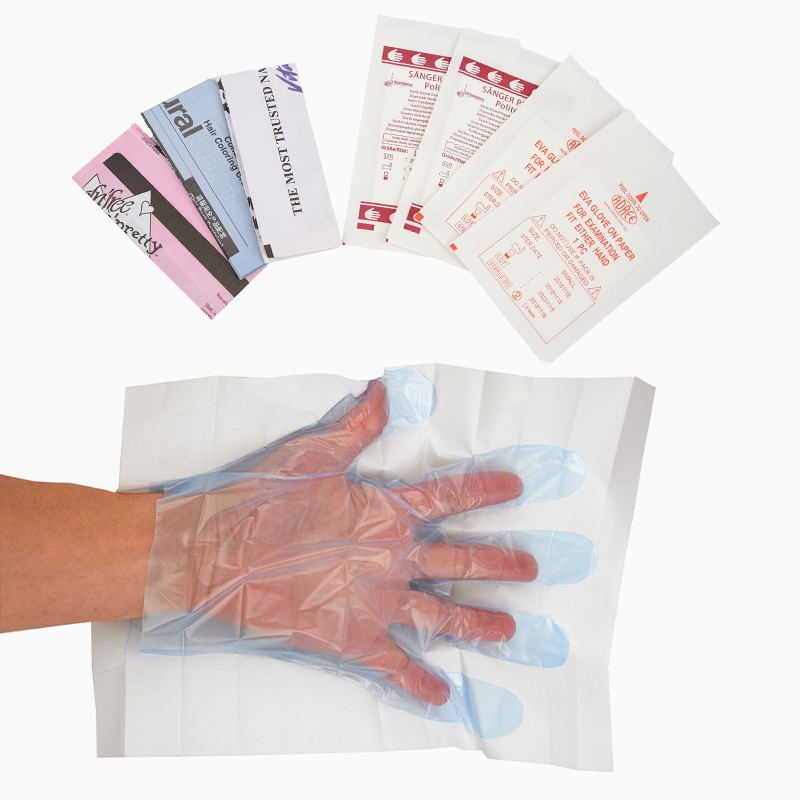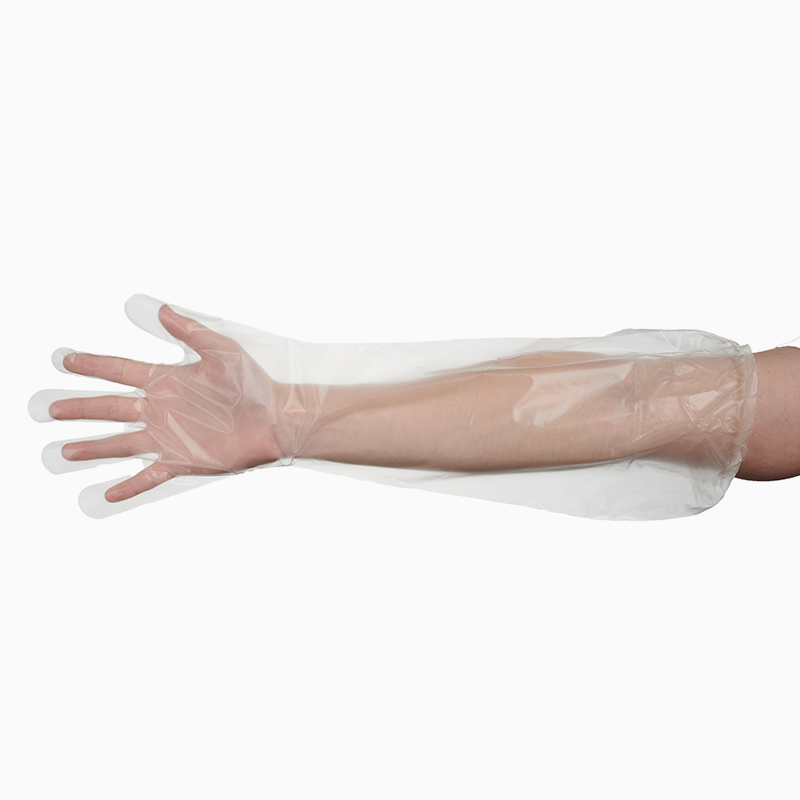ChatGPT is very popular now, let’s see what its answer will be for the vinyl gloves and nitrile gloves.
1. Are vinyl gloves safe for food handling?
Yes. Vinyl gloves are commonly used for food handling purposes and are generally considered safe. However, it is important to ensure that the vinyl gloves used are specifically designated as food-grade or food-safe. These gloves should meet the relevant regulatory standards and certifications for food contact materials.
Vinyl gloves are known for their resistance to oils, greases, and certain chemicals, which can be beneficial in food handling environments. They provide a barrier between the hands and the food, helping to prevent cross-contamination and maintaining hygiene standards.
However, it’s important to note that vinyl gloves are not recommended for handling fatty or oily foods, as these materials can potentially degrade the gloves and compromise their integrity. In such cases, nitrile gloves or other appropriate alternatives may be more suitable.
Ultimately, it’s crucial to follow proper food safety practices, including regular glove changing, hand washing, and adherence to local food handling regulations, to ensure the safe handling of food regardless of the type of gloves used.

2. What are the differences between vinyl gloves and nitrile gloves?
Vinyl gloves and nitrile gloves are two distinct types of disposable gloves that have several differences. Here are the key differences between vinyl gloves and nitrile gloves:
1. Material: Vinyl gloves are made from polyvinyl chloride (PVC) material, while nitrile gloves are made from a synthetic rubber called nitrile. This material difference leads to variations in their properties and performance.
2. Strength and Durability: Nitrile gloves are generally stronger and more durable than vinyl gloves. Nitrile is known for its excellent puncture resistance and higher tensile strength, making it less likely to tear or break during use. Vinyl gloves, on the other hand, are less resistant to punctures and may be more prone to tearing.
3. Chemical Resistance: Nitrile gloves provide better chemical resistance compared to vinyl gloves. They are more resistant to a wide range of chemicals, including oils, solvents, and certain acids. Vinyl gloves offer moderate chemical resistance but may not perform as well as nitrile gloves in more demanding chemical environments.
4. Allergies and Sensitivities: Vinyl gloves are generally considered to have a lower risk of causing allergies or sensitivities compared to nitrile gloves. Nitrile gloves, although less likely to cause latex allergies, may still cause allergies in individuals with specific sensitivities to nitrile material.
5. Fit and Comfort: Nitrile gloves tend to offer a better fit and greater comfort compared to vinyl gloves. Nitrile gloves have excellent elasticity and conform well to the shape of the hand, providing a snug and comfortable fit. Vinyl gloves are typically looser fitting and may feel less form-fitting or tactile.
6. Cost: Vinyl gloves are generally more affordable compared to nitrile gloves. If cost is a significant factor, vinyl gloves may be a more economical option.
It’s important to consider these differences and choose the appropriate glove based on the specific requirements of the task, such as the level of dexterity, durability, and chemical resistance needed.

3. Are nitrile gloves more durable than vinyl gloves?
Yes, nitrile gloves are generally more durable than vinyl gloves. Nitrile gloves are known for their excellent durability and strength, making them less likely to tear or puncture during use. They have a higher tensile strength compared to vinyl gloves, which means they can withstand more stress and stretching without breaking.
Vinyl gloves, on the other hand, are not as durable as nitrile gloves. They are generally thinner and less resistant to punctures or tears. Vinyl gloves may be more prone to tearing when subjected to certain stress or sharp objects.
If durability is an important factor for your specific needs, such as in tasks that involve handling rough or sharp objects, nitrile gloves would be a better choice. They provide a higher level of protection and are more suitable for tasks that require greater durability and resistance to tearing.

4. Can vinyl gloves cause allergies?
Yes. Vinyl gloves are considered to have a lower risk of causing allergies compared to latex gloves. Latex allergies are primarily caused by the proteins present in natural rubber latex, which is not present in vinyl gloves.
Vinyl gloves are made from polyvinyl chloride (PVC), a synthetic material that does not contain latex proteins. This makes vinyl gloves a suitable alternative for individuals with latex allergies or sensitivities.
However, it’s important to note that while vinyl gloves have a lower risk of causing latex allergies, they may still cause allergies or irritations in some individuals due to other components or additives present in the gloves. Some people may be sensitive to certain chemicals used in the manufacturing process or the powder used to facilitate donning and doffing of gloves.
To minimize the risk of allergies or sensitivities, it is recommended to choose powder-free vinyl gloves and consider using non-latex alternatives like nitrile gloves for individuals with known sensitivities. Additionally, individuals with a history of allergies or sensitivities should consult with a healthcare professional or allergist for personalized advice and recommendations.

5. Which is better for medical use, vinyl gloves or nitrile gloves?
For medical use, nitrile gloves are generally considered to be better than vinyl gloves. Here are the reasons:
1. Durability and Puncture Resistance: Nitrile gloves are known for their superior durability and puncture resistance compared to vinyl gloves. In medical settings, where there is a higher risk of exposure to potentially infectious materials, nitrile gloves provide an added layer of protection due to their enhanced strength and resistance to punctures and tears.
2. Chemical Resistance: Nitrile gloves offer better chemical resistance than vinyl gloves. They provide a reliable barrier against a wide range of chemicals and hazardous substances commonly encountered in medical environments. This is particularly important in situations where healthcare professionals may come into contact with chemotherapy drugs, disinfectants, or other strong chemicals.
3. Allergies and Sensitivities: Vinyl gloves are generally considered to have a lower risk of causing allergies compared to latex gloves. However, some individuals may still have sensitivities or allergies to the additives or chemicals used in vinyl gloves. Nitrile gloves, on the other hand, are latex-free and have a lower risk of triggering allergic reactions, making them a safer choice for individuals with latex allergies or sensitivities.
4. Fit and Comfort: Nitrile gloves tend to offer a better fit and greater comfort compared to vinyl gloves. Nitrile gloves have excellent elasticity and conform well to the shape of the hand, providing a snug and comfortable fit. This enhances dexterity and tactile sensitivity, which are crucial for medical procedures that require precision and sensitivity.
5. Regulatory Compliance: Nitrile gloves often meet stricter regulatory standards and certifications for medical use compared to vinyl gloves. They are tested and approved for medical applications, ensuring they meet the necessary quality and safety requirements.
Considering these factors, nitrile gloves are generally preferred for medical use due to their superior durability, puncture resistance, chemical resistance, and reduced risk of allergies. However, it’s important to follow the specific guidelines and recommendations provided by healthcare authorities or organizations in your region to ensure the appropriate glove selection for medical applications.










